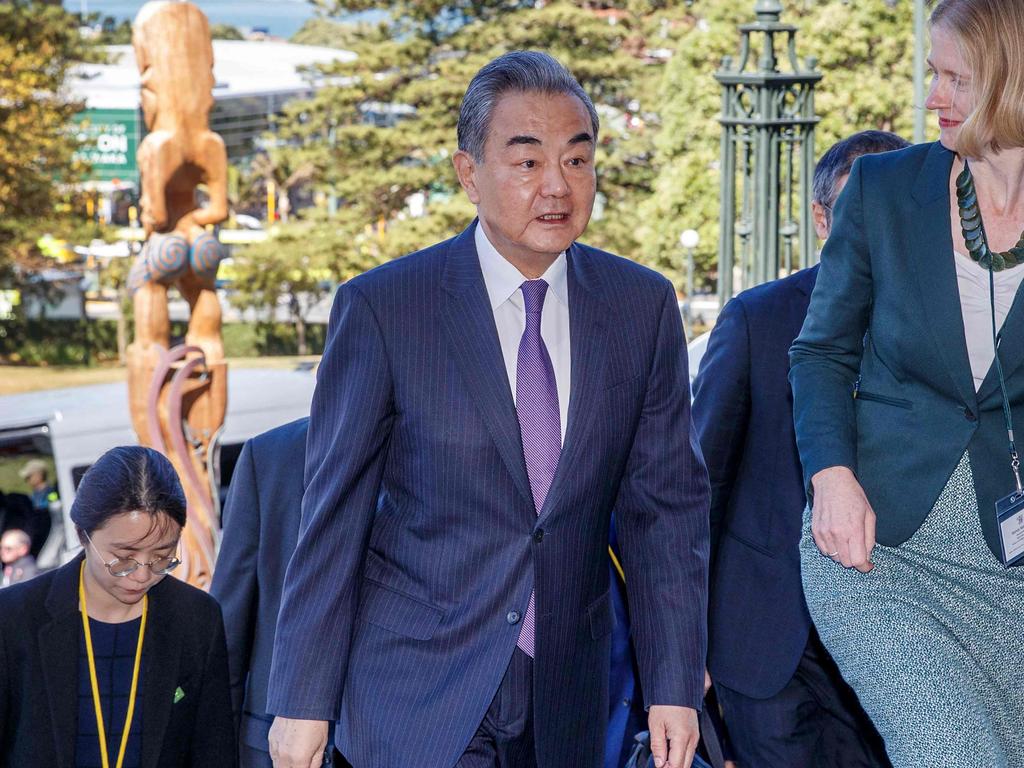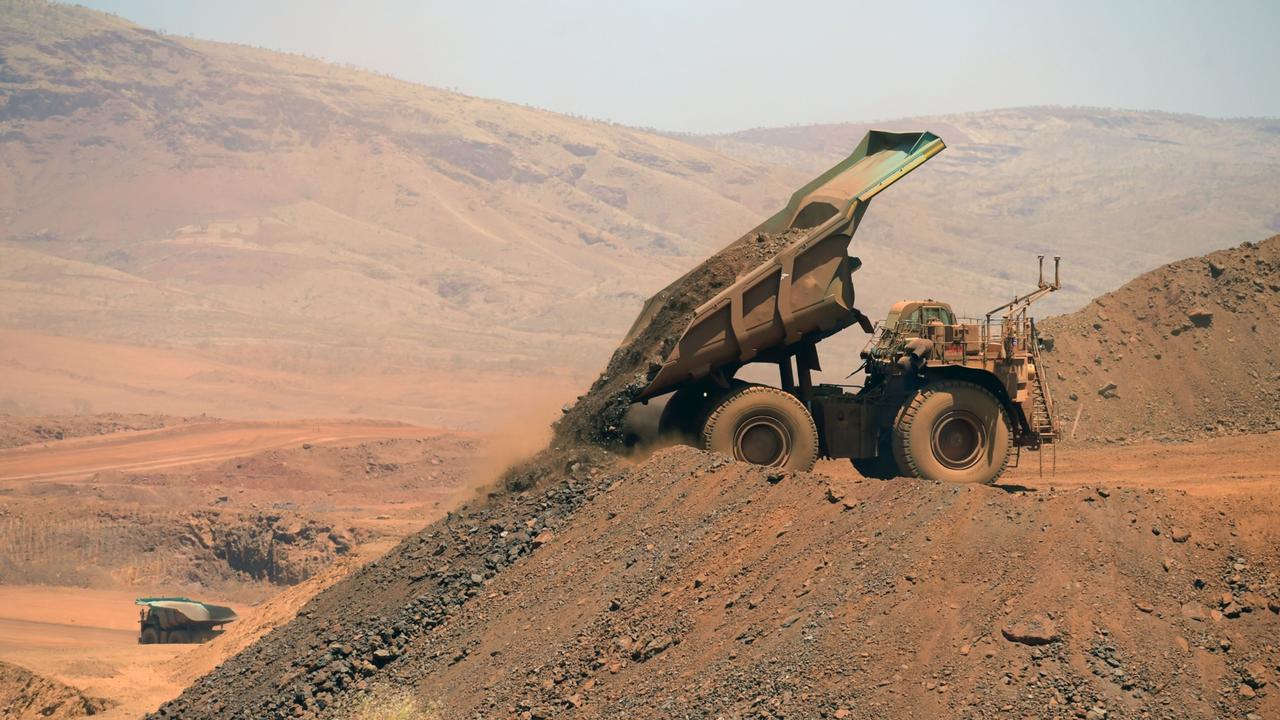China visit sees $105 billion iron ore exports on the brink
The future of two Australian industries are in the balance as China flexes its muscles over an issue that is not going away.
Mining
Don't miss out on the headlines from Mining. Followed categories will be added to My News.
China is sending its foreign minister to Australia, insisting that “win-win” co-operation is the “right choice”. But, at the same time, it’s emphasising a desire to end Australia’s biggest “win” – $105 billion worth of iron ore exports.
Chinese Foreign Minister Wang Yi arrives in Canberra tomorrow for trade talks aimed at resolving the remaining trade tariffs imposed on some Australian exports in retaliation for the former Morrison government calling for an investigation into the origins of the Covid-19 pandemic.
He will meet with Prime Minister Anthony Albanese, his Australian counterpart Senator Penny Wong, and former Prime Minister (and outspoken Beijing advocate) Paul Keating.
“China and Australia can leverage their strengths through their joint efforts to build a more prosperous and secure future for the Asia-Pacific region and beyond,” proclaims an editorial in the Chinese Communist Party’s mouthpiece, People’s Daily.
“There is no justification for such economically interdependent nations to fall victim to unfounded notions of ‘decoupling’ or an imagined ‘new Cold War’.”

But the Beijing-controlled South China Morning Post (SCMP) has emphasised ahead of Wang’s visit how Beijing is doing exactly that.
It details how China plans to break its dependency on Australian iron ore because it remained a “US security partner”. “Therefore, diversifying supply sources has both an economic and a national security imperative,” the article asserts.
Controlling interests
“China has long stood as Australia’s most important trading partner, with bilateral trade comprising nearly one-third of Australia’s total foreign trade,” People’s Daily reminds its readers.
“China boasts an enormous market in demand, an extensive industrial supply chain, and a large number of high-calibre workers and entrepreneurial talent, while Australia is home to rich and high-quality mineral resources, world-leading specialised expertise, a highly developed service industry and a well-established legal system.”

But China’s government-controlled businesses have an established track record in disrupting global markets. Competing global corporations struggle to survive extended commodity price collapses. But Beijing has proven eager to underwrite its own interests.
BHP told shareholders Monday that new Chinese-backed iron ore suppliers were already challenging Australia’s dominance in the market. It expects much greater competition to emerge as the decade unfolds.
BHP chief executive Mike Henry pointed to the impact of new Chinese-owned-and-operated nickel mines in Indonesia as an example of what may be in store for iron.
The use of polluting processes that are unacceptable elsewhere means that this critical mineral is exceptionally cheap. And that has put the future of BHP’s cleaner WA Nickel West operations – and the future of 3000 employees – in doubt.
“To put that into context, 30 per cent of the Australian nickel market has gone offline and another 30 per cent is under pressure,” Henry said.

Steely resolve
“The massive investment overseas is a part of China’s long-pursued goal of enhancing its position in the global iron ore trade by taking a larger ownership stake in overseas iron ore supply,” the SCMP quotes Chinese commodities analyst Liz Gao as saying. “At present, we estimate that there is Chinese ownership in around 5 per cent of global iron ore supply.”
Market analysts say Foreign Minister Wang is expected to use his visit to push for the easing of restrictions on Chinese investment in Australia. That’s despite Beijing renewing its crackdown on foreign investors in its own country.
He’s also expected to push Canberra for support in its bid to join the Comprehensive and Progressive Agreement for Trans-Pacific Partnership, or CPTPP.
In return, China’s Ministry of Commerce has suggested that remaining punitive tariffs – including that on wine – could be lifted as early as next month.
“There is no historical grievance or contemporary hostility between China and Australia, and their common interests vastly outweigh any differences,” the People’s Daily editorial insists. “Both sides must ensure that co-operation continues as the cornerstone of the bilateral ties.”
Beijing’s relationship with Canberra soured in 2020 as the Covid-19 pandemic began sweeping the world. It imposed tariffs on wine, barley, seafood, coal and meat.
Relations have eased since Prime Minister Albanese was elected in 2022.
But underlying tensions remain.
The prospect of improved economic and security relations between Australia and Vietnam last week prompted Foreign Minister Wang to warn about “block confrontation” and demand the two nations “do more things conducive to regional peace and stability”.
Global iron ore prices have become increasingly volatile as the vital mineral comes off record price highs in recent weeks.
And Beijing’s release of positive market data late last week has revived hopes of an improvement in iron ore demand. Against all expectations, steel production data claims an increase of about 1.6 per cent during the first two months of this year – despite expectations of a significant decline.
Iron ore futures market prices clawed their way back up 0.9 per cent on Monday to $US111.6 per ton after an 11 per cent drop during the previous week.
However, analysts say China’s property construction crisis has shown no signs of improvement. And that will continue to put downward pressure on global demand and prices.
Jamie Seidel is a freelance writer | @JamieSeidel
Originally published as China visit sees $105 billion iron ore exports on the brink









